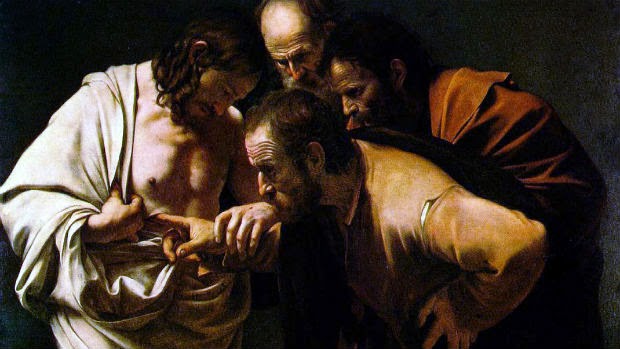The God of Love Is the God of Critical Thinking
Lincoln Cannon
16 May 2010 (updated 12 December 2015)

If sincere questions or disagreements detract from your spiritual experiences then you might ask yourself whether your inspiration is coming from the right God. This thought confronted me today during church services, when a speaker told a story about his missionary work. While trying to connect spiritually with a group of persons, the missionary was repeatedly interrupted by one person with questions and disagreements. The missionary called this person a “hijacker” and commented that this “detracted from the spirit” and made missionary work difficult.
Clearly, an unquestioning and mindlessly agreeing audience is easier to control. If such control is a source of the spiritual esthetic that moves you, you will probably resent the questioners, doubters, and otherwise divergent thinkers among us. They are a threat to your power. Yet the power that comes from such control should not be confused with the power that comes from love.
The Bible identifies at least two sorts of gods: on the one hand, there is that god that would raise itself above all others in egotism (2 Thessalonians 2: 3-4); on the other hand, there is that God that would raise us up together in altruism (Romans 8: 16-17). The first does so through control (D&C 121: 36-39). The second does so through love (D&C 121: 45-46). The gamble is that the latter will overcome the former, given enough time and persistence. When we worship the God of love, we emulate the enduring power that comes through love, kindness, knowledge, persuasion, and long-suffering (D&C 121: 41-44).
Instead of being threatened by sincere questions and disagreements, we should celebrate them as indications of interest. When they are absent, we should worry that apathy is winning. When the esthetic of love moves us, we see and feel God at work in the tumultuous unifying works of science, politics and art. Although consequent to tension, and even because of that tension, their effects are ennobling, empowering, and invigorating. Consider, carefully, that even your religious or spiritual tradition, to which you may feel deep unquestioning devotion, almost certainly began with doubts, disagreements, and questions, as clearly exemplified in the case of Mormonism by Joseph Smith (Joseph Smith History 5-11).
Returning to my experience at church services today, the missionary’s story ended better than it began. He recounted how his companion encouraged him to meet with the questioner individually and repeatedly to work through the questions toward improved mutual understanding. The result was a conversion to the Mormon faith. I suspect the result was also a deeper and more enduring conversion, consequent to the honest expression of the sublime, even divine, quality of passionate critical thinking.


